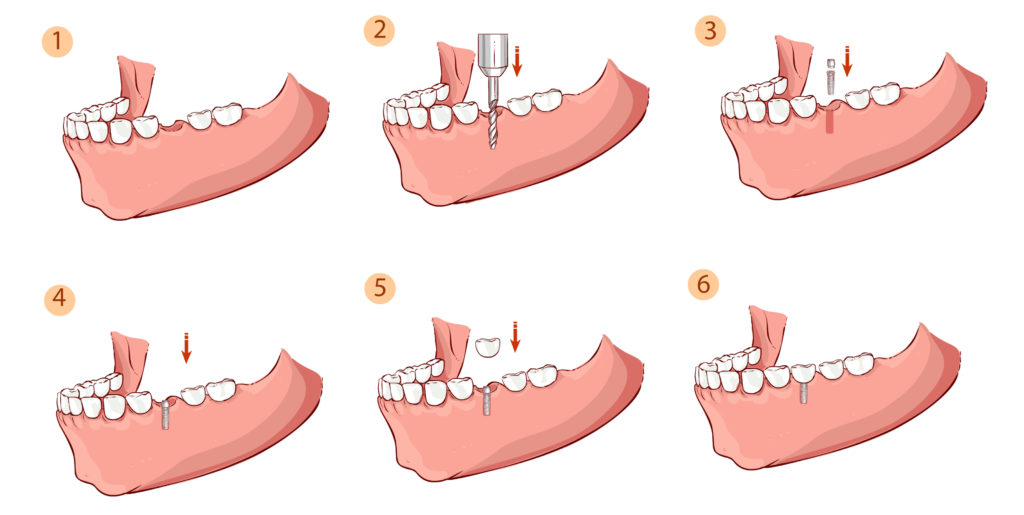What is a dental implants? The implantation process and the result
Dental implants are a treatment that provides the best replacement for natural teeth. During treatment, implants are screwed into the patient’s jaw in order to replace teeth are missing, and in cases where teeth are missing in the whole mouth. The implants are inserted at strategic points to support full teeth plates in the entire mouth.
After the tooth transplant, crowns are loaded and together they form an exact structure of the natural teeth.
The dental implant process is a process that requires patience and understanding: patience during the implant treatment, and the understanding that the outcome also depends on the patient’s behavior.
That is why in Dr. Averbuch’s clinic we emphasize transparency and full sharing of the process with the patient. Before your arrival to the clinic, we have prepared some reading material for you to deepen your knowledge and answer burning questions regarding the one-day tooth implant process, as well as other types of dental implants.
Is a dental implant painful?
The answer is no, at the most, you might feel discomfort for a few days. The transplant is performed under local anesthesia or a different type of anesthesia depending on the patient’s condition, depending on the patient’s request and health. After the transplant, there may be a feeling of discomfort and sensitivity in the treated area, but the pain can be relieved by painkillers. The treating physician will provide a prescription for painkillers and will explain how to take them. He will also prescribe medication prior to the treatment if needed in order to minimize the recovery time.
Who needs a dental implant?
Teeth loss can occur for many reasons, such as: after a certain age, trauma or during / after illness. No matter how you look at it, at one point or another we will all need new teeth to continue to function without limitations.
The main causes for tooth loss are usually:
Caries or periodontal disease (such as periodontitis)
These diseases lead to gum and bone recession, causing the tooth to loosen and fall out. In addition, due to the lack of teeth in the receding area, the disease and bone recession may affect adjoining teeth.
External Trauma
Sometimes we lose teeth as a result of an injury or an accident. Trauma can also occur inside the mouth as a result of biting or chewing a hard object.

Grinding or Tooth friction (Bruxism)
After a certain level of grinding, the previous appearance of the teeth cannot be restored. In such cases using crowns/ implants is a great solution. Some of these treatments may require tooth lamination.
Defective Root Canal Structures
A root canal not done properly or a canal structure that is contorted due to inflammation or trauma, require dental implants to restore the affected area.
Tooth growth
Curvilinear fixed teeth that cannot be properly aligned, or teeth growing into each other, or any problematic situation requiring surgical intervention and implantation.
There are other factors, of course, but the best indication of the need for dental implants is the desire to get our lives back on track since lack of teeth affects our quality of life.

